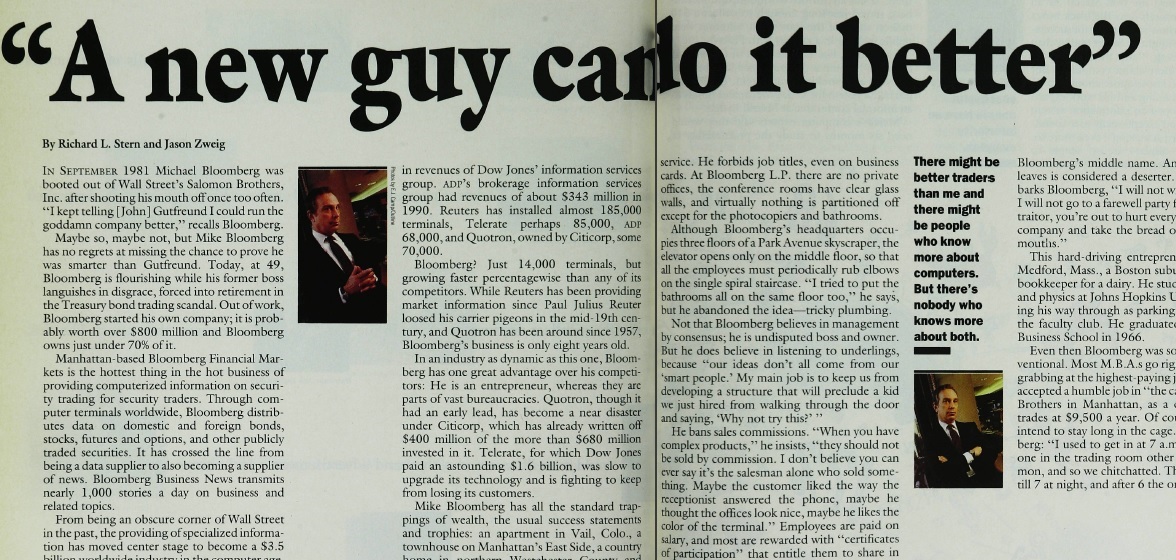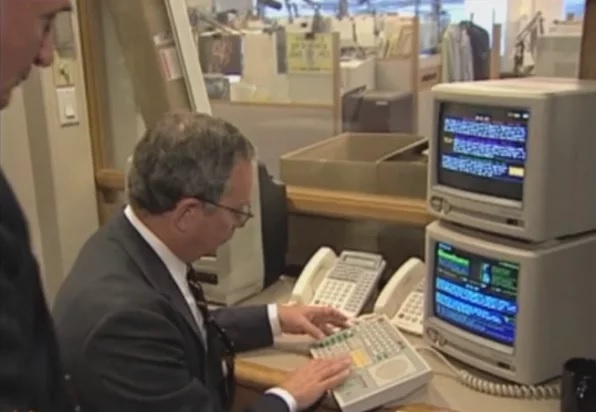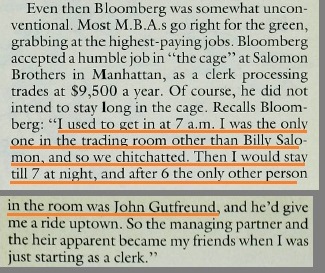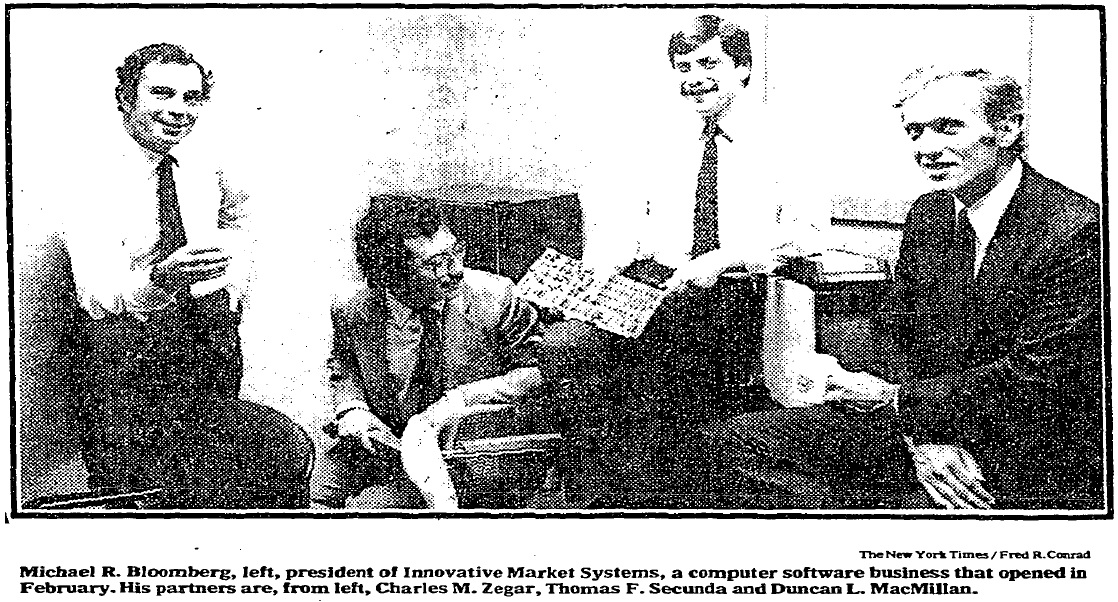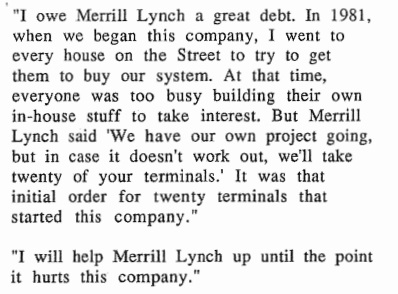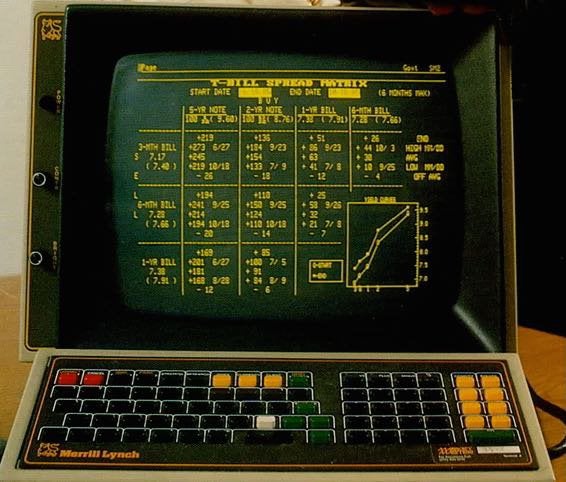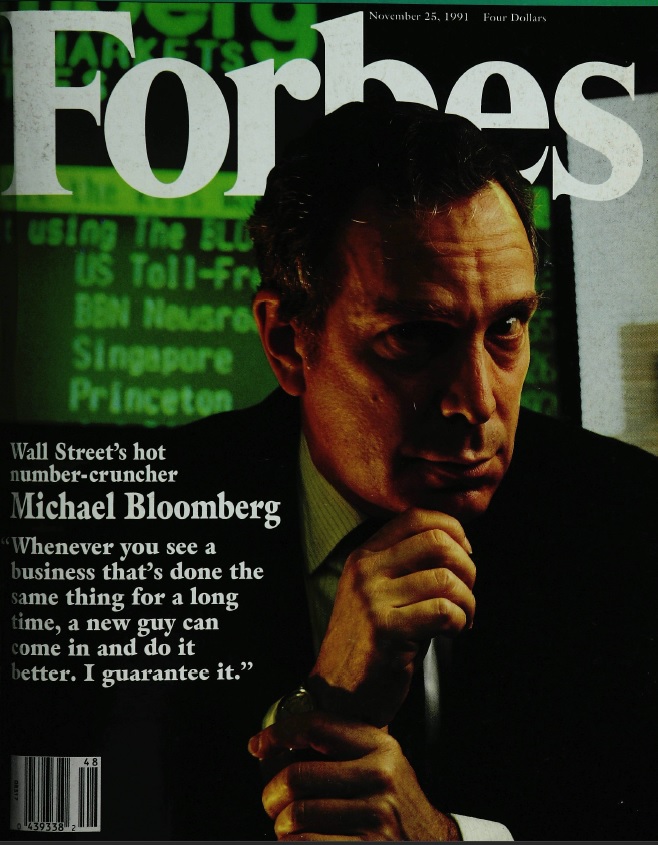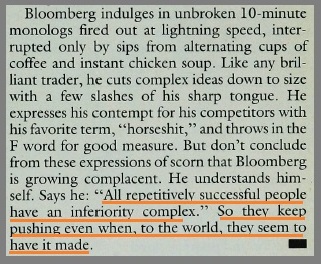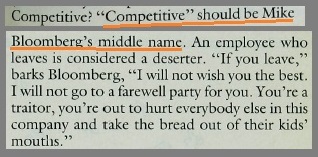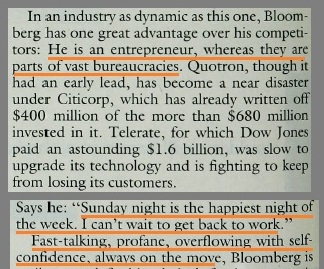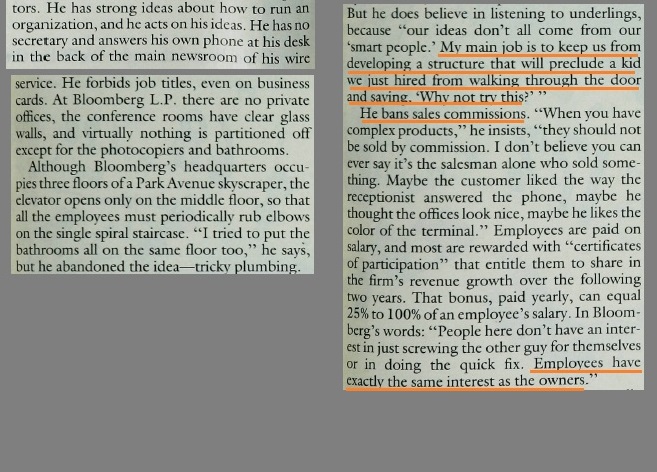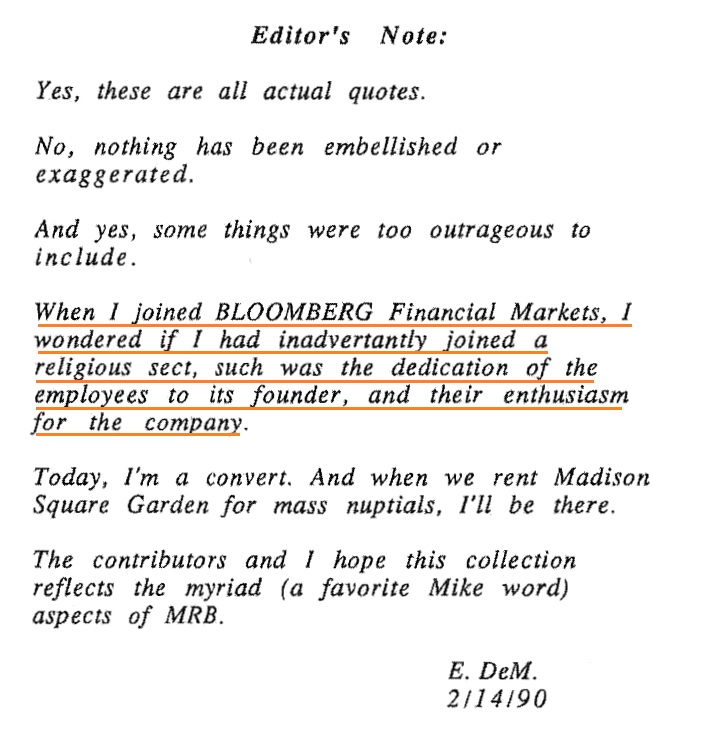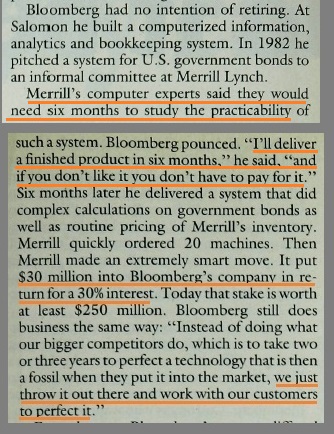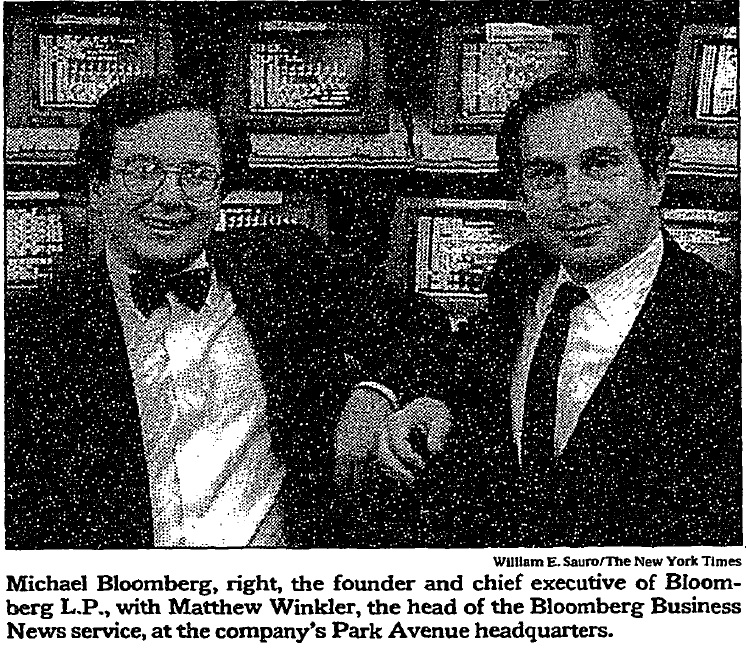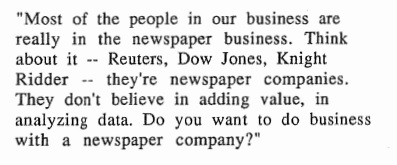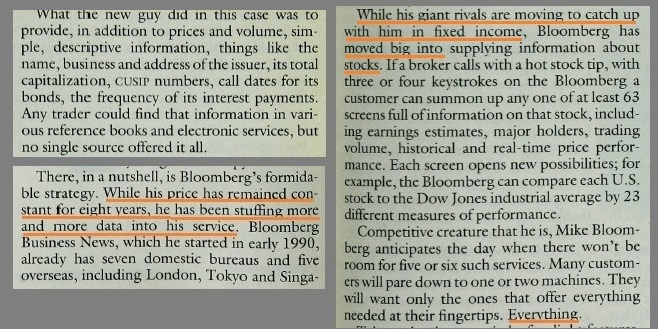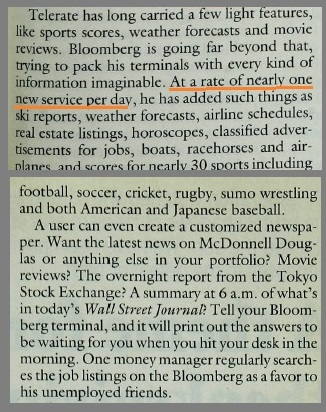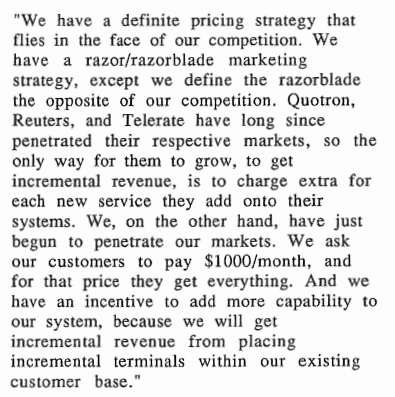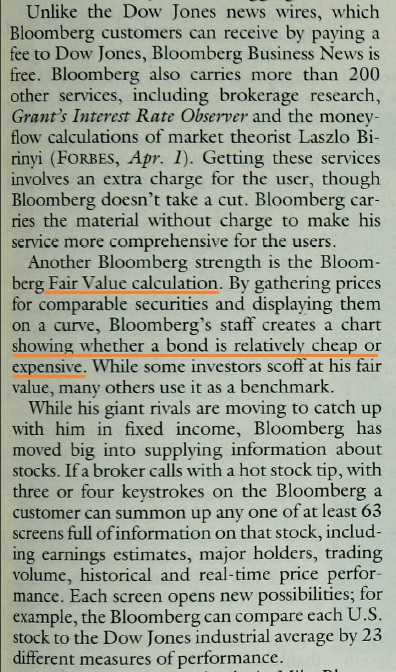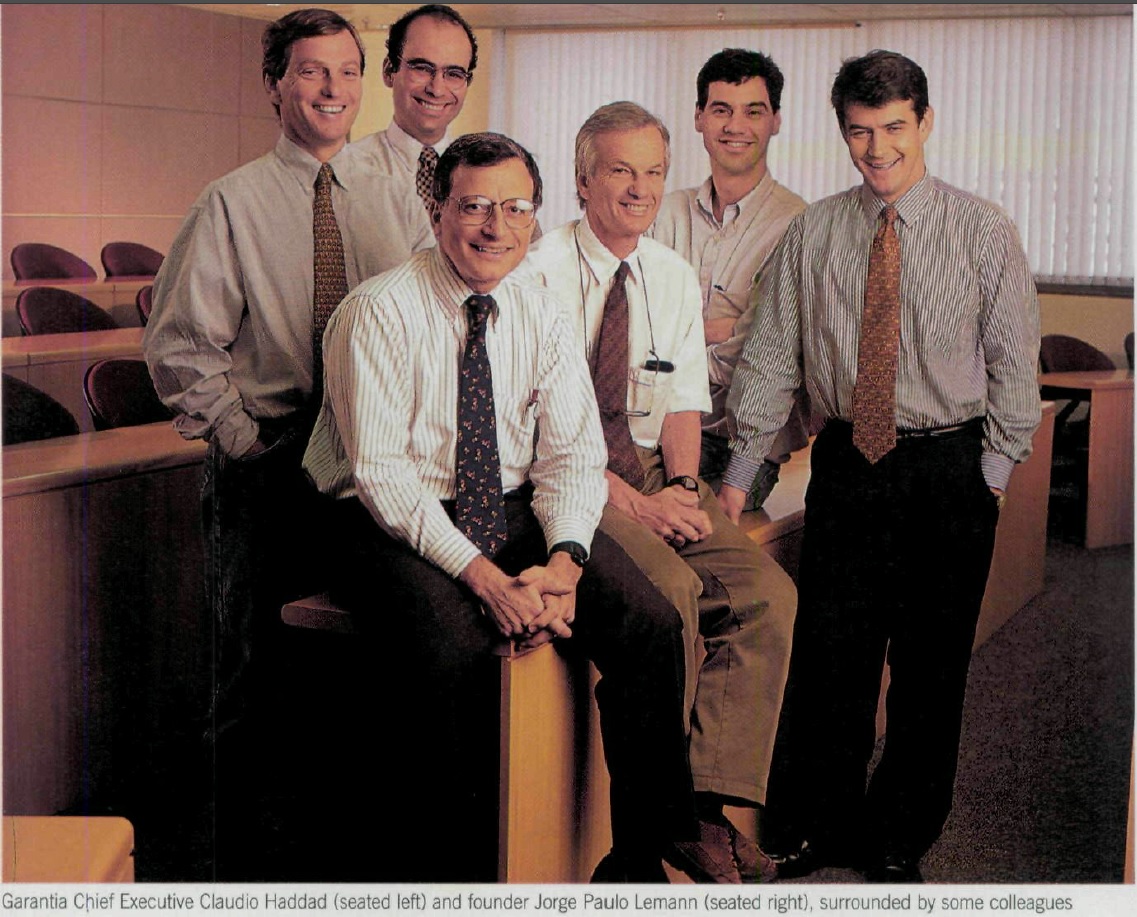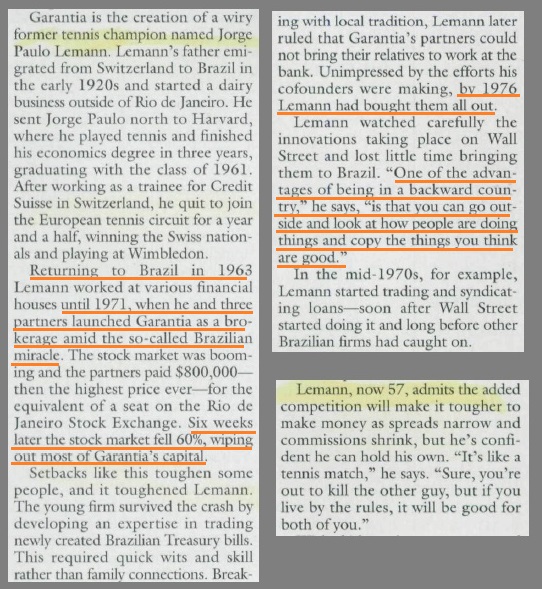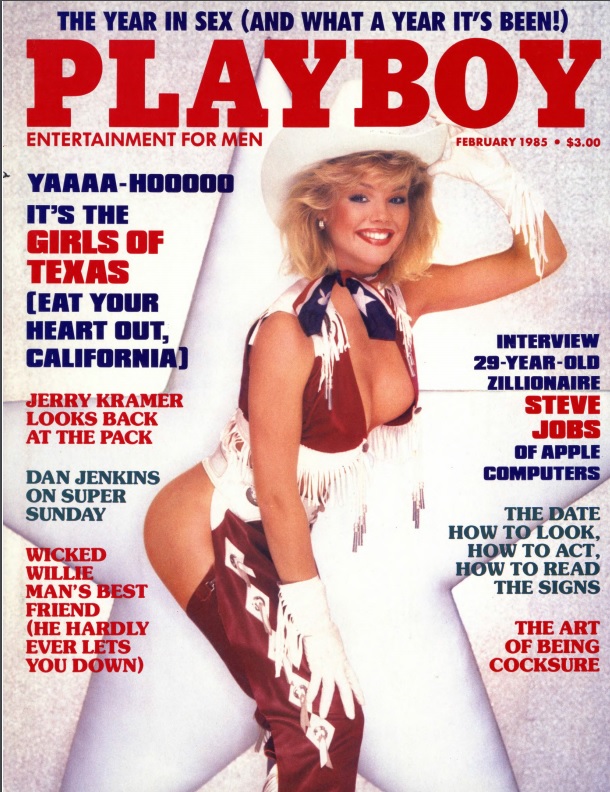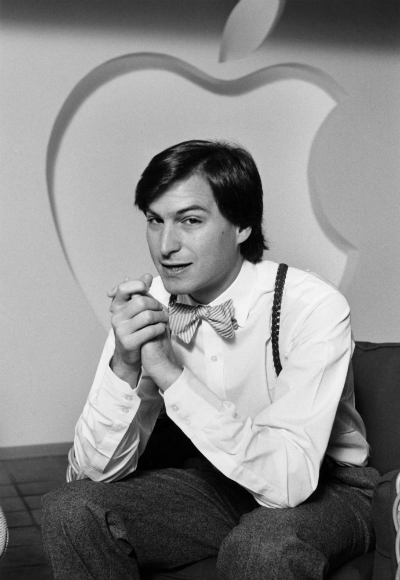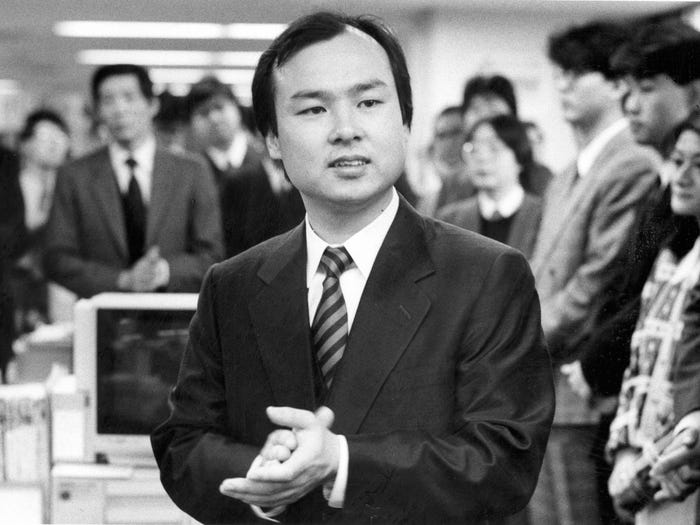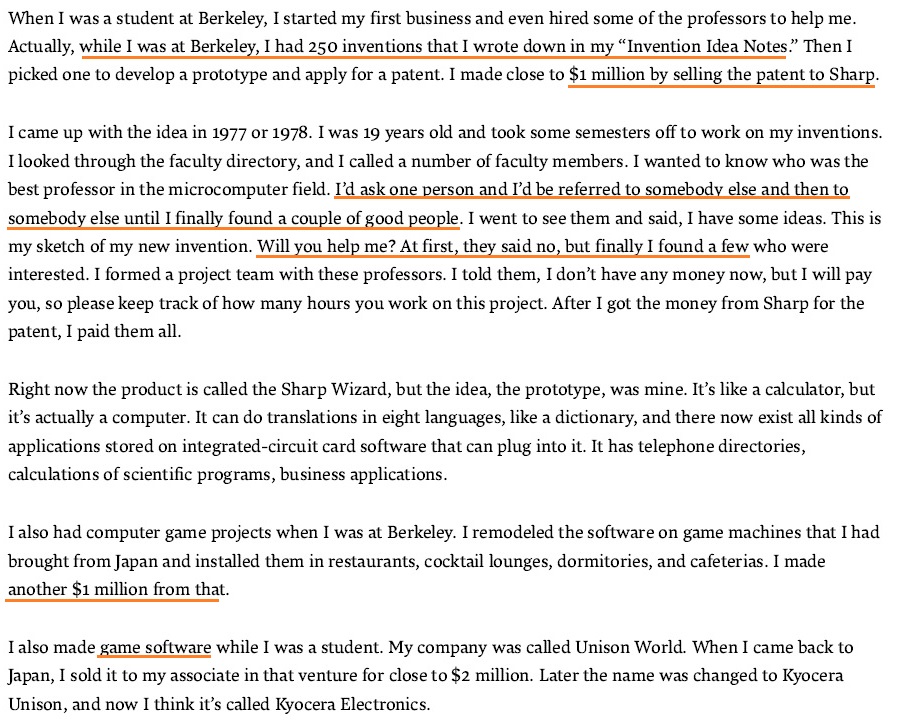"It was a pretty lowly start. We slaved in our underwear, in an unair-conditioned bank vault, with an occasional six-pack of beer to make it more bearable."
"We counted billions of dollars of bond and stock certificates"
But he didn't quite get along with everyone: "I kept telling John Gutfreund I could run the company better"
On being fired: "Nobody likes to be told you're history. It's a rejection, it hurts your ego. But it didn't matter. I don't remember looking back. This is what it is. And I look back now: thank goodness they fired me."
I think businesses already in existence tend to have greater problems during a recession, as people stop spending or change their buying habits. I'm not sure that has anything to do with new businesses."
Big companies come with an enormous management staff that resists change. Like generals who never actually want to go to war because they've got big cushy jobs getting ready for war."
Translated by Fortune: "He lives by a single principle: do something only if it improves the core business, namely moving those terminals, which accounts for practically all the revenues. Anything else is a waste of time"
"There might be better traders than me and there might be people who know more about computers. But there's nobody who knows more about both."
"If the buyside could get information, they would be able to even to fight. And there would be demand for my product. And we leveled the playing field."
And then we gave you some computer programs so you could do something with it - without you learning how to program, without you learning how to be a mathematician."
